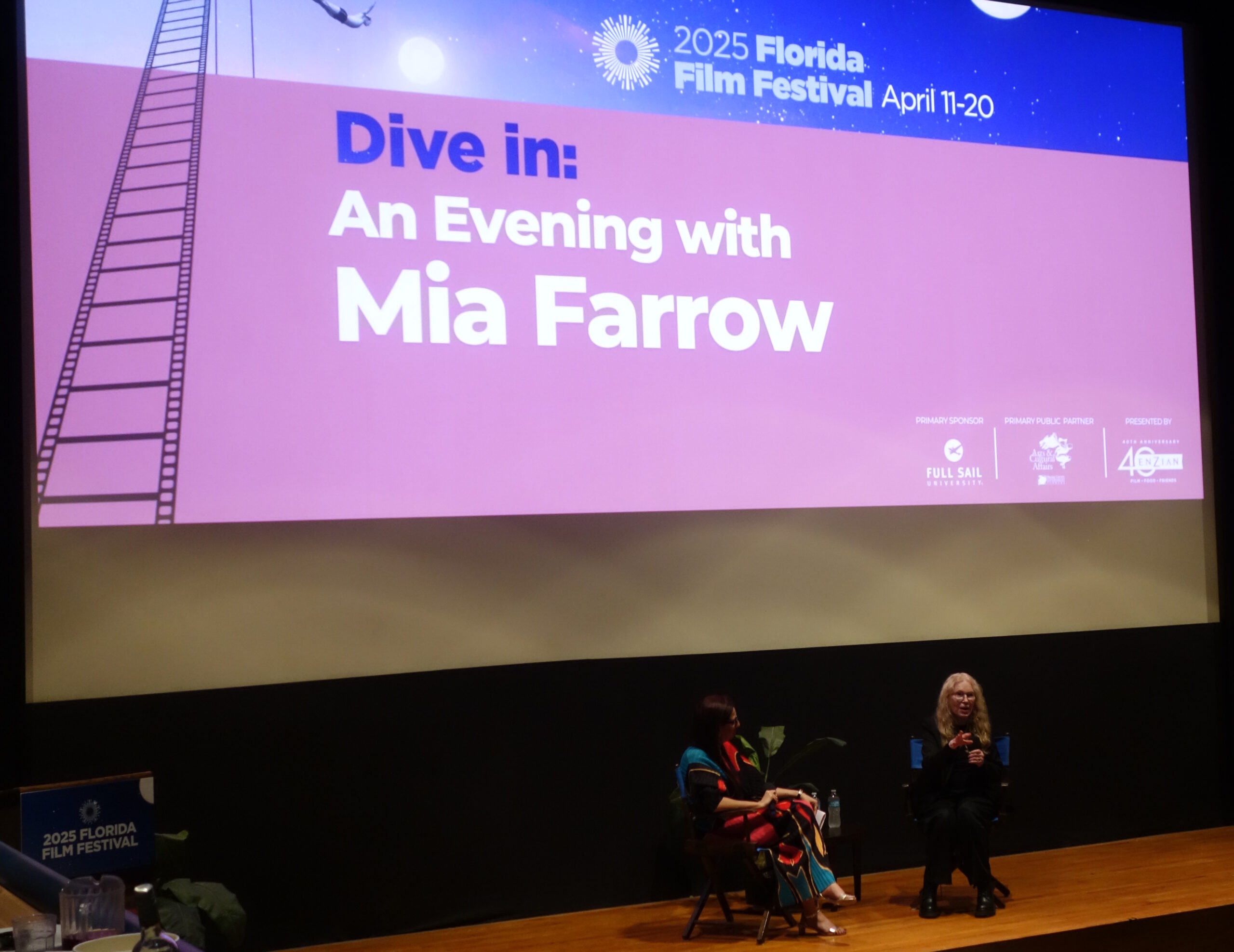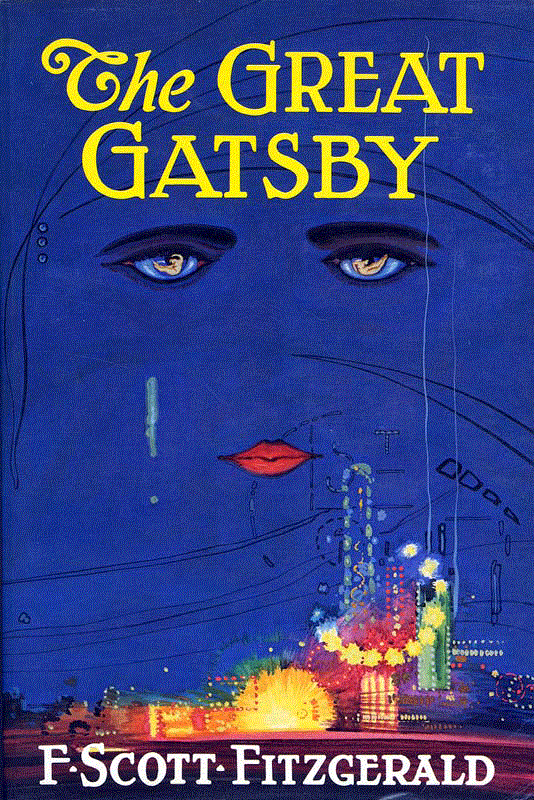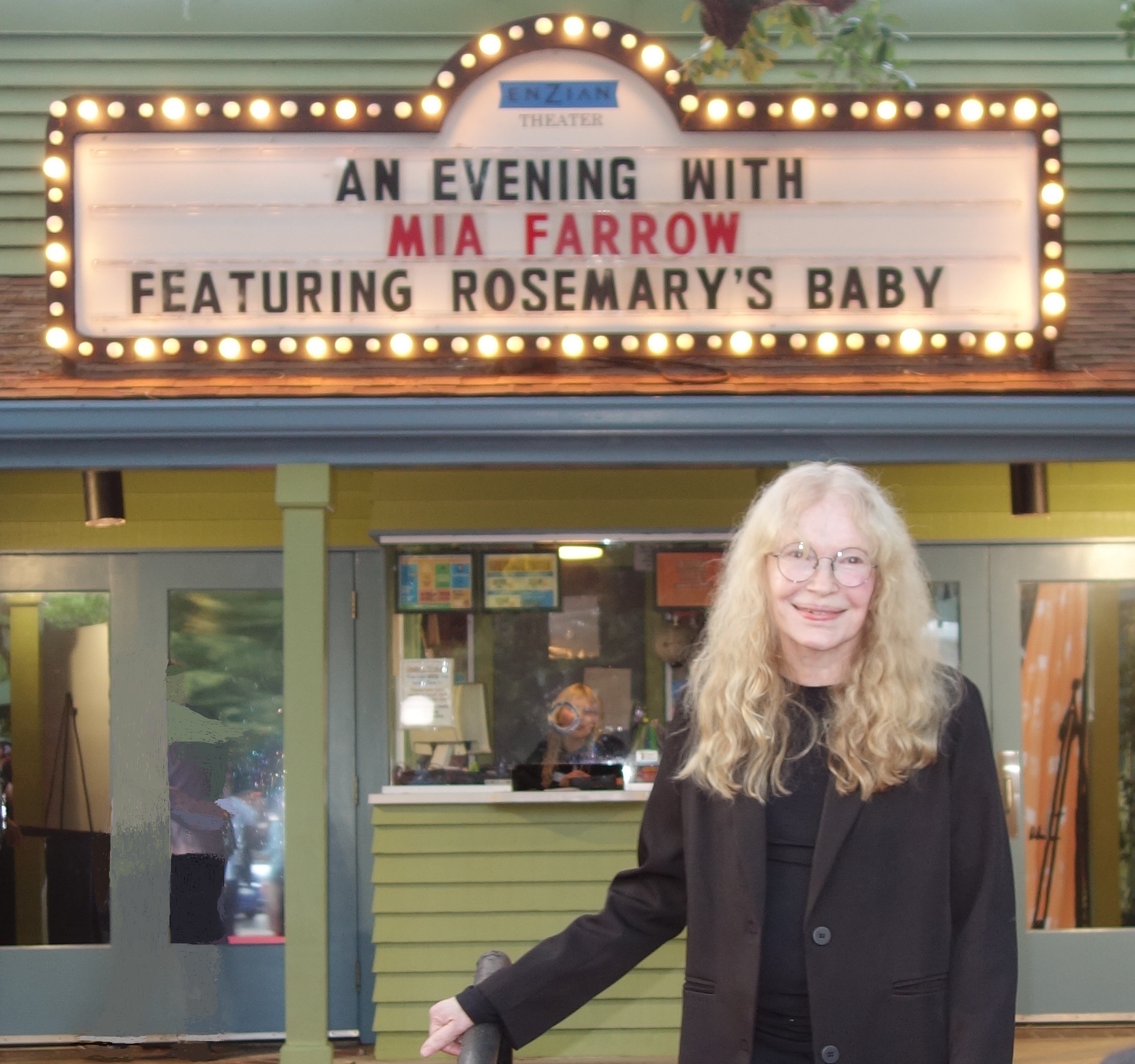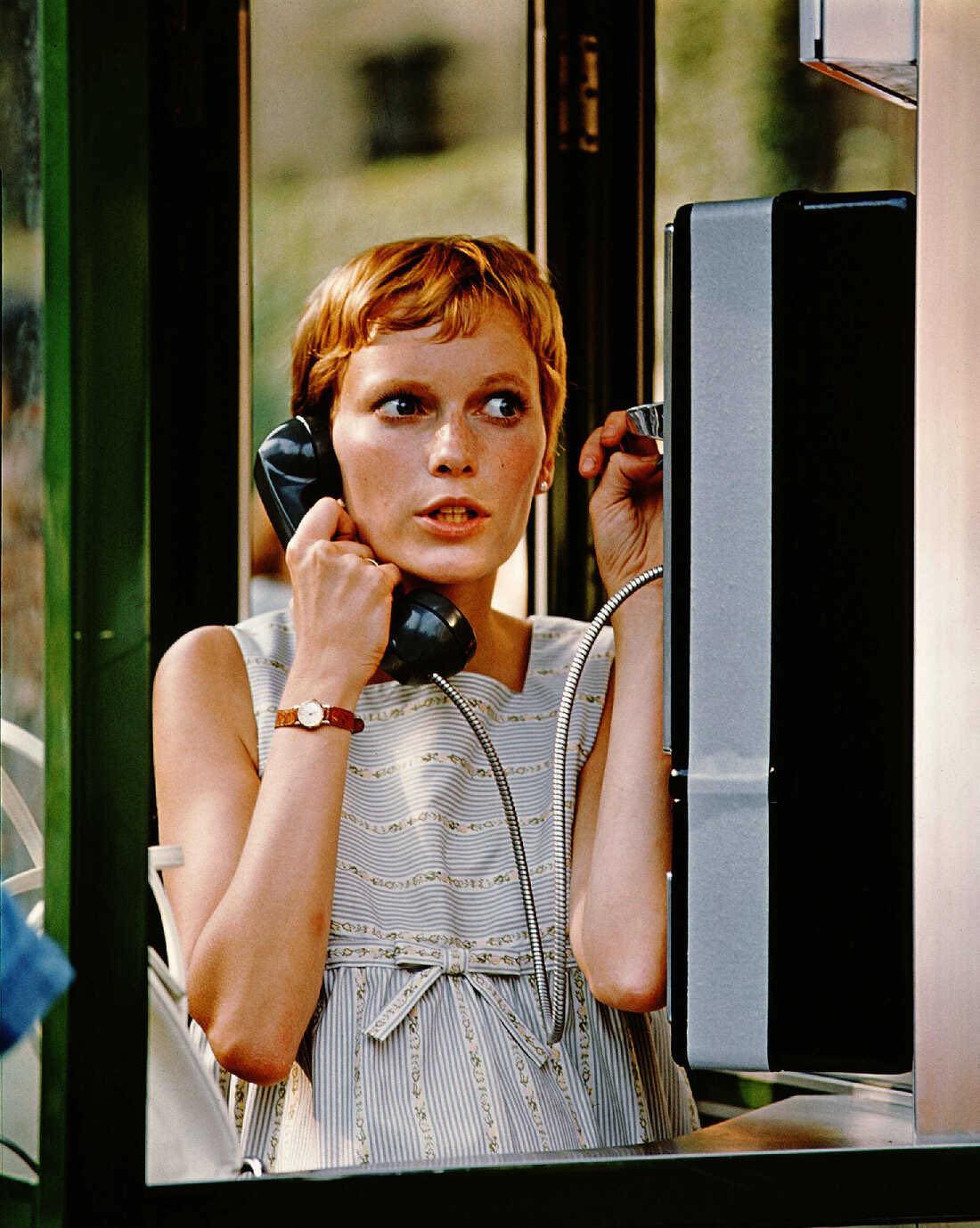An Interview with Mia Farrow
Actress to screen Rosemary’s Baby at Florida Film Festival
From The Orlando Weekly, April 16, 2025
On the eve of her appearance at the 2025 Florida Film Festival, where she will screen the 1968 horror masterpiece Rosemary’s Baby, actress Mia Farrow shared her movie memories and reminisced about her career and personal life.
“I was thrilled when I was offered the part [of Rosemary],” Farrow recalls. “I know that I was not [the first choice. They] offered it to Jane Fonda, who would have been wonderful, and a bunch of other people. But, fortunately, for me, it was turned down by, you know, these extraordinary actors.”
Farrow even claims Fonda would have been better, as she was more suited physically and more age-appropriate, being eight years older than Farrow. But once production started, Farrow says she gained confidence.
“Luckily, I had that book [by Ira Levin], so though we didn’t shoot it in sequence, I was able to always know where I was. Now, back at the time, our director, Roman Polanski, a superb director, spoke very little English. I got very little direction except for the physical part, like your move. [Polanski] also wrote the script, but, as I say, he barely spoken English at the time, so it was directly taken from the book.
“Obviously it was a very complex [part]. I’m in every scene,” Farrow says. “It takes me from a happy, young wife all the way to something different. But that’s what an actor lives for, and I had never been offered a part like that. … But, also, I have to say I don’t think I’ve been offered a part that … substantial since. … I should hope for a part that asks a great deal of us, and that part certainly asked a great deal of me as an actor. And, and we live for that, you know, as actors. So, you know, most of the other films that I’ve done haven’t asked that much.”
 The shoot was also dangerous, requiring Farrow to walk into real traffic on a busy New York City street, with Polanski following her with a handheld camera because his crew members refused.
The shoot was also dangerous, requiring Farrow to walk into real traffic on a busy New York City street, with Polanski following her with a handheld camera because his crew members refused.
“[The rest of the crew] were way too rational,” Farrow explains. “It was not a very safe thing to be doing. And Roman told me, ‘Oh, don’t worry. Nobody will hit a pregnant woman.’ [But] I knew it was risky. I also knew that I would be the one hit before Roman because he was on the other side of me. But, you know, I don’t know if I’d do it now.”
Another type of danger lurked on the set: creative tension, fueled by disagreements between Polanski and Farrow’s co-star, John Cassavetes, who was an older and more established director.
“John was, what seemed to me, a lot older at the time. And I was also worshipful of his wife [Gena Rowlands]. And I loved his films. So they started off on a great foot – the two men – and then as the shooting went on, John’s style of acting and directing was so organic to John [that] he wanted certain moves that seemed comfortable to him. He wanted to be able to have … latitude with the dialogue, … improvise a little bit. You know, his films are … ostensibly improvisational, [but] Roman was every ‘and,’ ‘but’ and ‘er.’
“It really came to a height during the very last sequence of the movie,” Farrow explains. “Roman had set up each person where he wanted them, and John had a different idea of where he should be. … It came to a point where they were heading toward each other in a not very nice way [and], fortunately, Ruth Gordon [who won an Oscar for her supporting role in the film] walked in and she said in that voice that could crack glass, ‘Now, now, now, let’s all get back to work.’”
So what about the infamous Rosemary’s Baby curse?
“That last scene in the movie, the witches’ gathering, … they were all supposed to say something like ‘Hail, Satan,’ [and actor] Sidney Blackmer just shook his head and said, you know, ‘No good will come of this. It’s not [right].’ Some people wouldn’t say it. And a year later Sidney was blind [like one of the film’s characters], and [composer] Krzysztof Komeda, who was there that day watching, was dead [from a fall]. And Roman’s wife, dear, beautiful angel Sharon [Tate], was killed [in the Charles Manson murders]. [And] my husband [Frank Sinatra] left me. It seemed like the end of the world. … I don’t know what to say, you know. I don’t believe in curses. … It might have been bad luck.”
On a lighter note, one thing that would have profoundly changed the film was the proposed casting of Robert Redford over Cassavetes.
“He would have been great, [but] it would have been different, and maybe it wouldn’t have been as good,” Farrow says. “He’s a very different actor. [John] seemed old for the part. … But he gave that role a kind of New York actor feeling, but Redford had the West Coast gorgeousness.”
 Farrow ended up working with Redford, with whom she became good friends, on 1974’s The Great Gatsby, which received mixed reviews, something Farrow says she understands.
Farrow ended up working with Redford, with whom she became good friends, on 1974’s The Great Gatsby, which received mixed reviews, something Farrow says she understands.
“[F. Scott Fitzgerald’s] writing is so exquisite. It’s in the writing. It’s in the passages,” she says. “I don’t know if there can be a successful version of it because of the brilliance of that dazzling little book.”
The 1980s saw an astonishing creative collaboration between Farrow and Woody Allen. Despite the well-publicized personal tragedies, the relationship produced classics such as Zelig, Hannah and Her Sisters, Crimes and Misdemeanors and what Farrow refers to as the “rose” year.
“We did two films that Woody and I would refer to as ‘the year of the roses.’ It was Broadway Danny Rose and Purple Rose of Cairo,” Farrow says, adding that she sometimes went out in public wearing the films’ costumes, which were vastly different: one “mousy” and the other with “fake boobs, fake hips.” She says she learned how a woman’s appearance can affect how she is treated.
“The way I was treated when I was in either one of those costumes was very, very different,” she says. “If I was the mousy girl from Purple Rose of Cairo, people treated me much more respectfully.”
Almost more than acting, Farrow is known for charity, specifically her work with children, involvement with UNICEF and trips to war-torn Darfur.
“That’s been very meaningful to me,” she says. “We go this way but once, and I just wanted a way to give. … I did what I could, where I could.”
Despite her accomplishments, she remains humble.
“I’ve been very, very lucky,” Farrow says.
Rosemary’s Baby will screen at Maitland’s Enzian Theater on April 18, at 7:30 p.m., and will be followed by a Q&A session with Farrow. Tickets cost $100 and were still available at press time. Visit FloridaFilmFestival.com for more information.
© 2025 Orlando Weekly / MeierMovies, LLC

